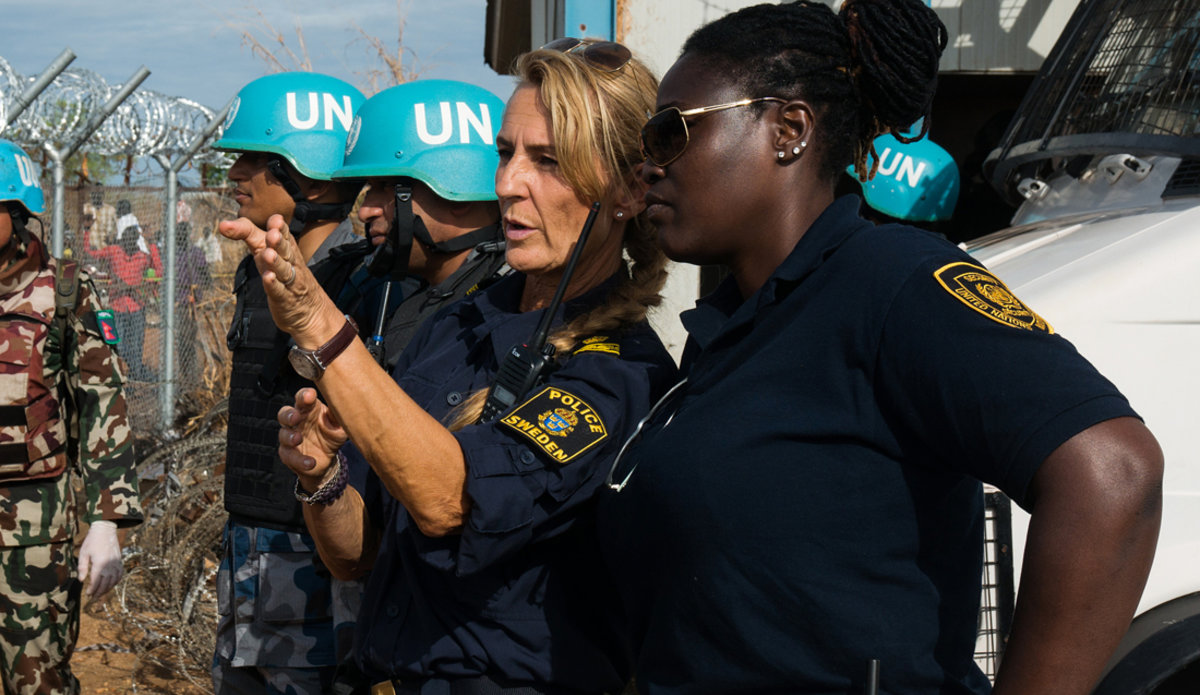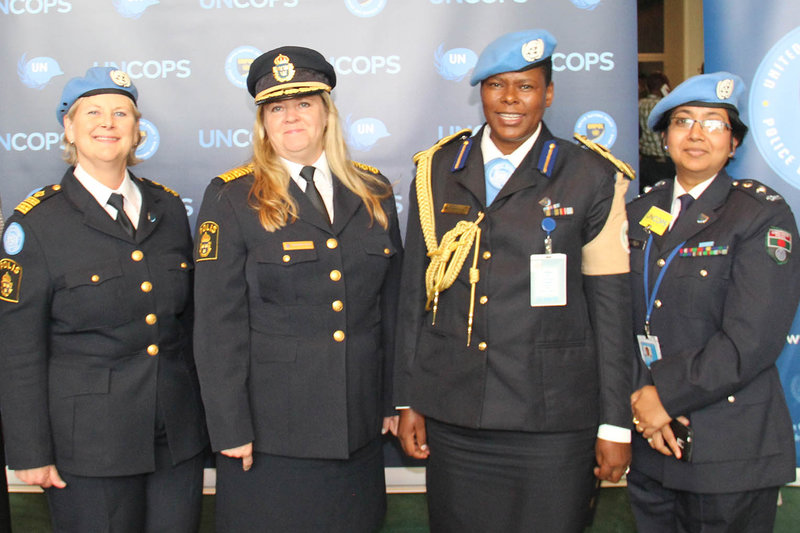The representation of female police officers is critical to increase the operational effectiveness and efficiency of UN police across the full spectrum of United Nations policing activities. In addition, to mainstreaming gender-sensitive policing, UN Police launched a Global Effort, with Member States, to increase the representation of female police peacekeepers.
With an average of 10 percent reached since 2014, the Police Division identified the need for more female Individual Police Officers, in particular with French language skills. However, Member States identified that a major challenge for them to deploy police women is that wearing fire arms and driving is not part of their daily routine. Due to the volatile security situation and for reasons of personal safety both are required for police officers deployed in peacekeeping. [add gender infographic]
All-female assessment for mission service trainings for individual police officers
In response, the UN Police Division launched a training initiative to familiarise female officers with and prepare them for the required assessment for mission service. It includes language comprehension, driving and proficiency in firearms assessment (see section: Individual Police Officers: requirements and assessment for mission service).
Based on the request of Member States, a “selection assistance and assessment team” (SAAT) training can be conducted, based on the priority of officers needed.
Trainings have taken place in six different countries, at their request. These include Rwanda (2014), Burkina-Faso (2014), Cameroon (2014), Benin (2015), Niger (2015), Togo (2016) and Guinea (2016). Since the all-female training initiative began in 2014, 660 female officers have been trained in seven countries. Once the test is passed, officers are eligible for deployment in any United Nations peacekeeping operation with their language and demand for their policing expertise. 358 have been recommended for deployment and 218 female officers deployed with United Nations Police.
One of the trainers from the Selection and Recruitment Section in the Police Division, Nicoleta Cristache, noted at one training in Togo in 2016: “I was impressed by the determination and strong will of the women to succeed. I am also very grateful for the help we received from the training centre staff and the strong support expressed by the Government to deploy more female officers to UN peacekeeping”.
Senior female commander’s preparatory leadership
The Police Division is developing a course is to train senior female police officers to strengthen the base and skills of experienced senior police officers to prepare them for leadership positions with United Nations police, such as Police Commissioner, Deputy Police Commissioner and Senior Police Adviser. The course complements the United Nations Police Commander’s Course (UNPCC).
All-female Formed Police Units
All-female formed police units have been deployed from Bangladesh to MONUSCO and MINUSTAH and from India to UNMIL. This is in contrast to the average formed police unit, where the percentage of female officers is typically lower than among Individual Police Officers.
However, female police officers play a critical role in all of the various tasks, including public order management, specialized capacities like Special Weapons and Tactics (SWAT) and high-risk operations. Female officers are indispensable during high visibility patrols and cordon and search operations, particularly pat-down searches of women. In some societies, only female police officers are allowed to interact with female members of the community.
Additionally, in post-conflict environments where sexual and gender-based violence may have been rampant or used as a method to pursue the aims of the conflict, community members may be more likely to approach female police officers. Thus, they enhance operational effectiveness and help to rebuild the trust that is essential for re-establishing the rule of law.
Therefore, the Policy on formed police units (2016) notes that mixed-gender units, in which at least one platoon (32 officers) is composed of female officers, have more operational impact and as such should be prioritized for deployment.
Senior female UN police officers
Senior female UN police officers currently serving the United Nations include Police Commissioner of the African Union – United Nations Mission in Darfur (UNAMID), Priscilla Makotose from Zimbabwe, Deputy Police Commissioner in UNMISS, Unaisi Vuniwaqa from Fiji, the Senior Police Adviser in UNISFA, Mary Gahonzire from Rwanda, as well as Senior Police Adviser in the UN Office to the African Union, Irene Gaga from Benin.
Previous senior police officers in United Nations Police Division include Ann-Marie Orler from Sweden, who served as Police Adviser from 8 March 2010 to January 2013 and Maria Appelblom from Sweden, who served as Chief of the Standing Police Capacity from 2014 to 2017. In Liberia, Ingrid Dagestad from Norway served as Deputy Police Commissioner in UNMIL (2014-2016), as well as the Police Division (2001), UNAMA (2001) and UNMIL (2005-2006). From 2013 to 2015 Hester Adriana Paneras served as UNAMID Police Commissioner, where she had previously served (2010-2011), before rejoining the South African Police service. Janice McClean served as Senior Police Adviser in the United Nations Integrated Peacebuilding Office in Sierra Leone (UNIPSIL) from May 2011 to January 2013 before returning to London’s Metropolitan Police Service.


